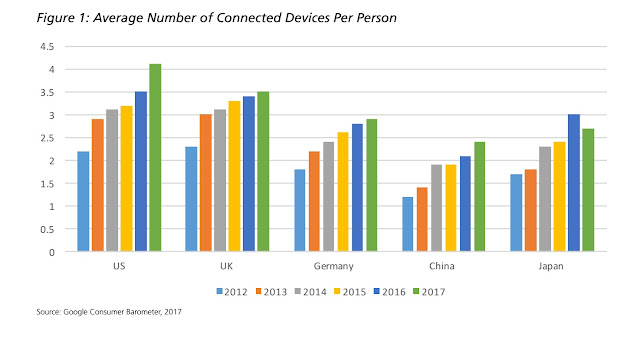Travel brands have only just started putting in voice-first
services and currently Amazon has a clear first-mover advantage thanks to its
Alexa and Echo products says EyeforTravel’s
new free report.
Amazon made a canny move in becoming the first major company
to roll out and heavily market smart speakers. This first-mover advantage has
made Alexa the go-to for the travel industry’s initial attempts to deploy voice
technology finds EyeforTravel’s new Can Voice Change the Way We Travel? Report, which is
free to download now.
It’s easy to see why travel brands are largely teaming up
with Amazon as it has by far and away the most popular smart speaker in terms
of sales currently. Amazon has at least 70% of the market share currently
according to estimates and substantially beating out Google Home in terms of
web search interest in 2016 and 2017. Even more importantly its Alexa personal
assistant, as they have made it part of their strategy to focus on the
supporting ecosystem and bring in external developers. This has allowed Alexa
to grow the number of ‘skills’, or programmed tasks and apps on the system,
exponentially across 2017 from around 7,000 to more than 25,000 by the end of
the year.
Hotels are putting their own offerings among these skills,
as are metasearch companies, airports, online travel agencies, and airlines. This
covers a multitude of brands, including KAYAK, United Airlines, Marriott, IHG,
Best Western, Skyscanner, Edwardian Hotels, Heathrow Airport, and Kimpton.
Hotels are probably the most prominent users of Amazon Alexa and Echo speakers
currently as there is an obvious use case for in-room speakers that act as
concierges.
For IHG, they have begun testing their own virtual concierge
through Alexa. However, they found that the human element was still critical,
using their call centre to train, “Central Reservation Offices (CROs) have been
trying to manage a downward cycle in that not many people are calling them
anymore, but they know a ton about the way people actually talk, their cadence
and what they ask for,” said Bill Keen, IHG’s VP of mobile solutions &
digital guest experience at EyeforTravel North America 2017. “Through voice
listening tools they actually powered our initial Alexa implementation in the
hotel rooms, where we actually had a repository of things that guests normally
ask when they call the call centre desk and we could actually build it into.”
However, current adoption trends doesn’t mean Amazon will
have its own way for the foreseeable future. Multiple players are eyeing the
opportunities that voice afford, including Baidu, Samsung, Microsoft, Apple and
Alphabet/Google. “I’m a huge Alexa fan, but I think Google is going to have a
big advantage as they have a lot of the context,” said Paul English, CEO of
Lola Tech. “When you do a simple query to Google Home, it can piece together
all of that.” This data advantage appears already to be having an effect as
independent research has found that Google Assistant is more accurate in coming
up with spoken answers than any competitors. Similarly, Chinese rivals have
made huge progress and claim that their systems are now more effective at
transcribing than native Mandarin speakers.
It therefore remains to be seen whether Amazon can keep its
lead but right now it is the biggest player in terms of dedicated voice
applications being built by the travel industry.
For more on the topic of voice and its impact on the travel
industry, click here
to download the complete report for free. You can also download our free report
on in-room technology, including smart speakers here.



